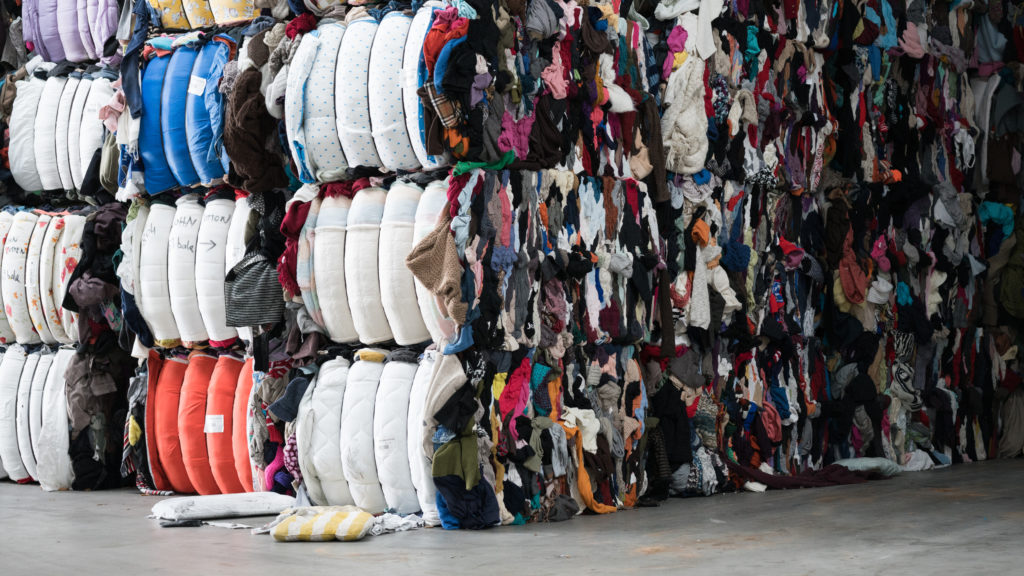“We have researched our members and found that the majority of them obtain the vast part of their collections from the charity shops and textile banks sources,” he said.
“We feel that, by working with charities and local government, that operating door-to-door collections could be the way forward, if it is correct that a large proportion of household textiles are not at present being recovered,” he added.
In the past, some textile recyclers have expressed concern over the quality of materials collected using door-to-door methods (see letsrecycle.com story), and the TRA stressed that it was also a member of the Campaign for Real Recycling, which backs quality, source-separated collections.
Mr Ralph claimed that, if the TRA succeeded in its objective of raising textile recovery's profile, “it is hoped that most of the textiles that are now hanging in the nation's wardrobes unused and the goods that even now, according to local authorities' research, is still going in household waste bins thus to landfill, can be recovered.”
According to Defra figures compiled as part of its Sustainable Clothing Roadmap project, between 1.5 million and two million tonnes of clothing waste is created each year, of which only 16% is recovered.
Depression
Mr Ralph highlighted the impact that the current economic situation would have on the volume of waste textiles which would arise and the sector's ability to capture them.
He said: “Apart from the despondence brought about by this depression, we cannot expect the usual amount of quality clothing to be disposed of by traditional methods whilst the jobless total in this country is rising on a daily basis and more household names are falling by the wayside.”
And, while he said textile recycling had been “lucky” compared to other sectors such as metal and plastics, due to not depending on Far Eastern markets, he warned members that they were not “immune” to the global economic crisis.
Claiming that the high prices being paid by textiles recyclers for materials, and their impact on profit margins, meant that “it is amazing that we are still in business”, Mr Ralph said: “When the next downturn comes along, we should be mindful of trying to protect our businesses and our suppliers in the long-term.”
Presidency
At the meeting, Mr Ralph revealed that he would be stepping down as president of the TRA, and that he had recommended Gerald Cemmell, who is currently the Association's vice-president, be appointed his successor.
He told the event: “I have now decided after 11 continuous years holding office in Recyclatex and the TRA that, in view of the momentous and monumental opportunities around the corner, that a younger, more mentally agile member should take my place.
He added: “We need a fresh outlook to be able to take on the challenges that are now facing our industry.”
Alan Wheeler, national liaison manager for the TRA told letsrecycle.com that if Mr Cemmell, who is also managing director of Leicester-based textile recycling business Ragtex UK Ltd, accepted the appointment, the formal handover from Mr Ralph would take place at the Association's next meeting, which was scheduled for the end of May.
Future
Commenting on the future prospects for the textile recycling sector, Mr Ralph detailed the work being undertaken by the TRA, including its role as part of Defra's Sustainable Clothing Roadmap project, which was launched in July 2007 (see letsrecycle.com story), with the aim of increasing the sustainability of clothing throughout its lifecycle.
He also told members that, as part of the Recycling Industries Alliance, the TRA had received an “undertaking” from Liz Parkes, head of waste policy at the Environment Agency, “to tackle unlicensed textile waste collectors”.
And, he said, with textiles now being considered within the 'end of waste' mechanism that was part of the revised EU Waste Framework Directive, “we now need to redouble our efforts to ensure that they adopt a sensible definition.”
As a result of the work the TRA was doing, Mr Ralph said that “the future has never shone brighter”, and told members that: “I feel we are now on the verge of a very exciting time for our industry.”











Subscribe for free